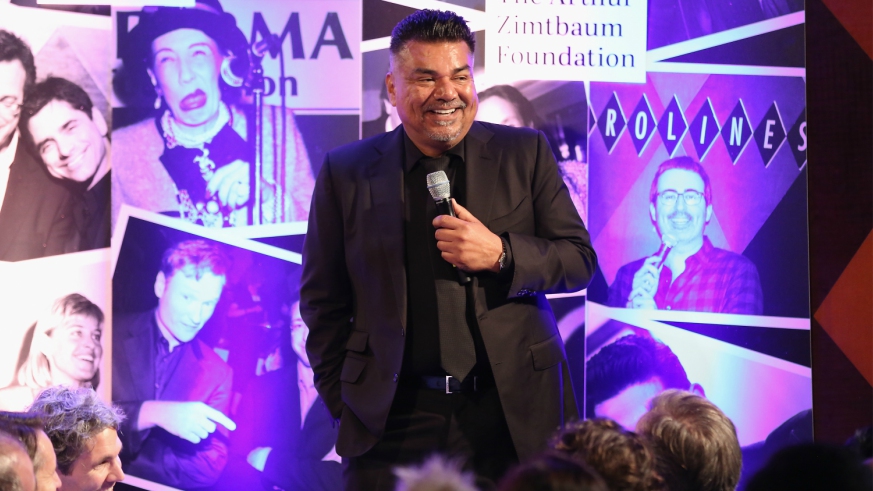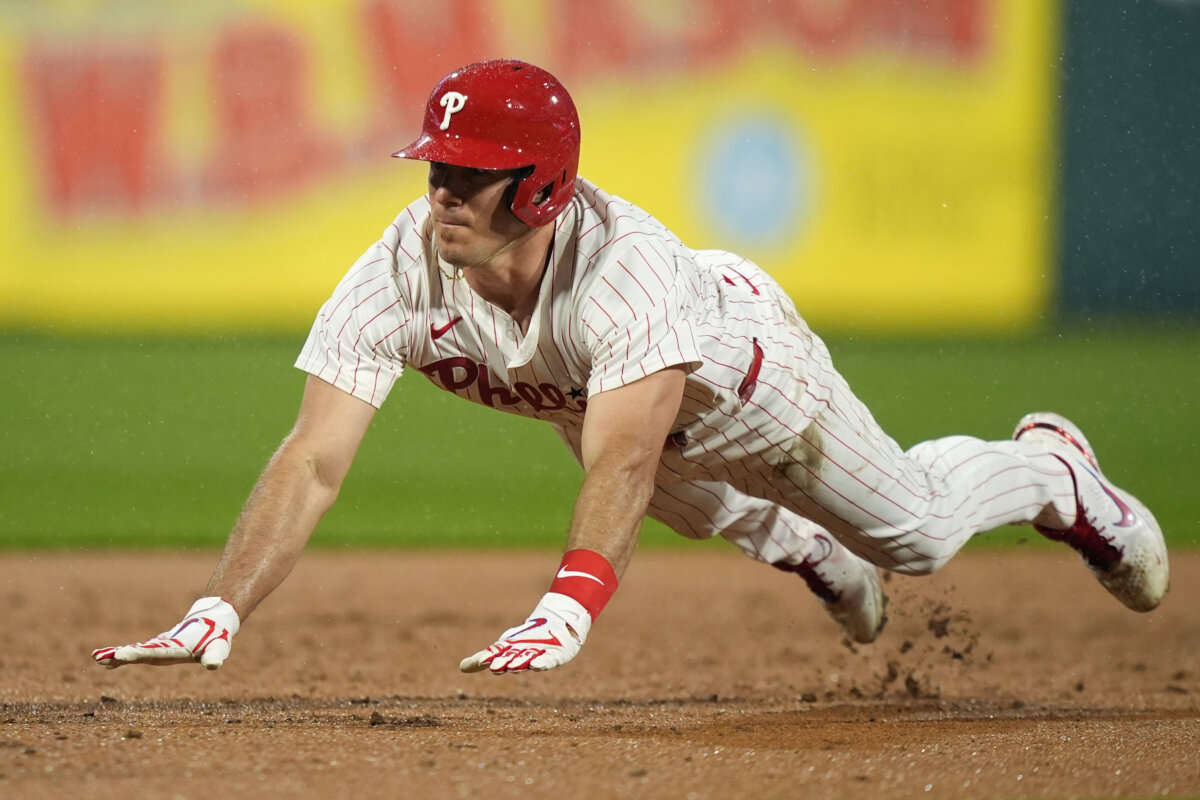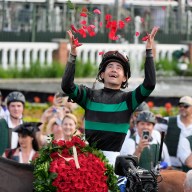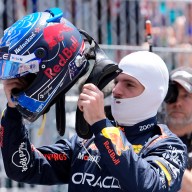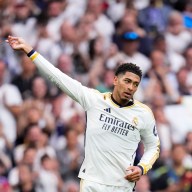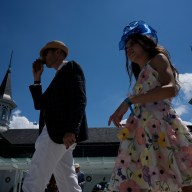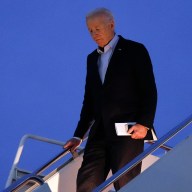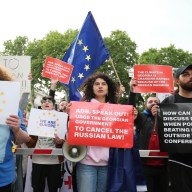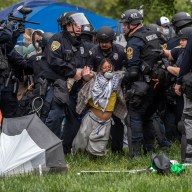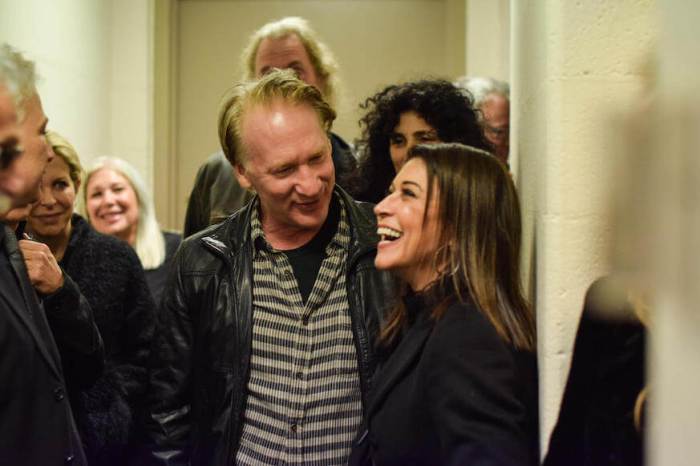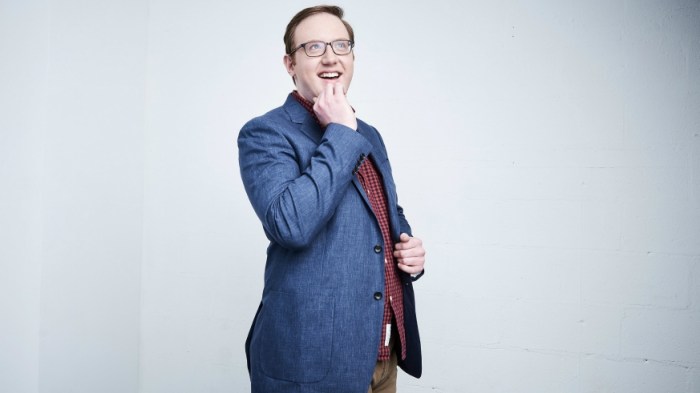From his hit sitcoms to breaking ground on late-night television, George Lopez has been a pioneer for Latino performers in the world of comedy. While a lot has changed since he first graced the stage and screen, Lopez has his concerns about the current state of affairs in the entertainment industry and beyond. Ahead of his shows in Boston this weekend, we caught up with the legendary comic to chat about stand-up in the age of Donald Trump, his thoughts on late-night TV’s lack of diversity as well as his recent golf outing with Ray Allen.
You were spotted golfing with former Celtics star Ray Allen. How’d you two become pals?
Ray and I have known each other from when he was playing, he might’ve been on the Celtics at that time, maybe 2008. When they used to come to L.A., they’d play on Christmas Day. I would always go to the Christmas Day games and, you know, guys sneak over and say hello. Knowing that he was a golfer, I remember I was in Phoenix one time, and he was playing early and we saw each other there. You always stay connected with these guys. They come to Los Angeles, they’re always looking for a place to play. And that day, I just happened to hit a hole in one. When Ray posted it [on Instagram], it was at the same time as Paul Pierce’s retirement for his jersey, but I’m not sure that Ray was ever going to go.
How’s Ray on the golf course?
Ray is an impressive golfer. He’s very good. He’s got a great swing. He loves golf and he’s very, very athletic. If a gazelle could hold a golf club, it would look like Ray Allen.
Trump seems to be the topic du jour for comics these days, and you haven’t shied away from criticizing him on social media. How has today’s politics influenced your work on stage?
It did in the beginning, but it’s almost like diets. You don’t want to say this is a Trump free show or it’s going to include Trump stuff. I prefer to not deal with that because it’s divisive. I’m trying to start the year with less. I’ve said what I needed to say. I don’t think I need to keep saying it. Anybody that’s a supporter of his, they might not be a fan of mine. If there are some that are, that’s great. But I’m not intentionally going out trying to divide an audience. When things are said publicly by someone in that position, comedians through the ages have always taken on politics, but not randomly. I didn’t randomly decide to talk about how he approached Latinos and how he approached Mexicans, especially since that first day that he announced. But as you go on, you remember that the bigger picture is that your job is to make people laugh and not to divide rooms. I try to keep everything up and above and beyond talking about him.
Outside of the stand-up stage, are you worried at all about the current state of affairs?
I wouldn’t want to be a high school student right now. The social media and with bullying and threatening, I’m not sure it’s anything that anybody has been able to put a finger on, clearly, because there’s been so many shootings in schools. Everybody is, at some point, going to feel inferior to other people, but that’s just part of growing up. I’m not sure that we ever acted on any of that. It’s a little bit sad even to think that arming a teacher—I’m not a fan of bringing anything that isn’t a pencil or a computer or a writing utensil into schools. I don’t think that’s the answer. The future doesn’t look cohesive at this particular moment.
You broke ground as the first Mexican-American star to host a late-night show with “Lopez Tonight.” Do you think the current comedy landscape is missing something by not having more people of color as late-night TV hosts?
I have to say yes. We were trying to be very diverse and very inclusive to performers [with “Lopez Tonight”]. I had 50 Cent on with Mark Harmon. I had Enrique Iglesias on with Def Leppard. It was [Justin] Bieber’s first talk show, and Far East Movement. Great musical acts, I love music. From Janet Jackson to Nicolas Cage to Ben Kingsley, Helen Mirren, and they all really liked the approach that we were taking. Unfortunately, the people at TBS or the producers didn’t like that it was something that they were a bit uncomfortable with, because they’re not used to it. I love Jimmy Kimmel, Jimmy Fallon and [David] Letterman at that time, but I wasn’t trying to be those guys. Respectfully, I love those guys, I’ve been on all their shows. It wasn’t about creating a rift between me and other late-night shows, we were just trying to create our own path.
One day they would say, “Not enough women are watching.” And then women would be watching, they would say, “Not enough Latinos are watching.” I don’t think anybody could go to work worrying about who you’re losing. They were so wrapped up in offending anyone, but if you look at talk shows, I don’t think anybody intentionally tries to offend anyone. But when people are very sensitive, you’re going to make some people not happy. I don’t think that’s necessarily the worst thing that you can do. If we’re going to live in a society where everything we eat is what we want and everything we hear is what we like, we’re not going to survive. That’s where I think we’re going.
How do you hope the comedy world remembers you when it’s all said and done?
Comedy is a very dog eat dog business. In the ’70s or ’60s when you could say somebody like Lenny Bruce or George Carlin or Mort Sahl or Red Buttons or Dick Gregory, they were all at a time when there was maybe hundreds of comedians and not tens of thousands of them. Now that there’s tens of thousands of them, when somebody is gone, nobody really thinks about what their legacy is because they’re so consumed in themselves that they’re not thinking about anybody else.
If you go:
March 3, 7 p.m. and 9:45 p.m., The Wilbur, 246 Tremont St., Boston, $66, thewilbur.com

